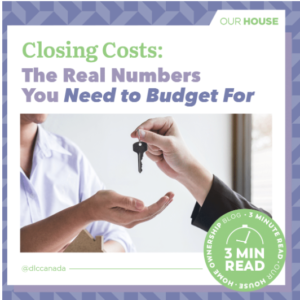
Being on the path to purchasing your first home is one of the most exciting and most rewarding moments in life!
To help make the mortgage process smoother, one of the things you can do is to get pre-approved for your mortgage. Getting pre-approved doesn’t commit you to a single lender, but it does guarantee the rate offered to you will be locked in from 90 to 120 days which helps if interest rates rise while you are still shopping!
Rate holds for mortgages offer several benefits including:
- Protection Against Rate Increases: A rate hold guarantees that you will receive a specified interest rate for a set period, typically up to 120 days. This protects you from potential rate hikes during this period. Plus, if the rate should drop, you can still take advantage of the lower option!
- Financial Planning: Knowing the exact rate you will pay allows for better financial planning and budgeting. It provides clarity regarding what you can expect for your monthly mortgage payments. This makes it easier to target the right price range of home so that you can ensure future financial stability.
- Time for Decision Making: A rate hold provides peace of mind allowing you the necessary time to shop around for the right home. During this time, you can also compare different mortgage options without the pressure of changing interest rates. This is particularly useful when you’re considering different lenders or mortgage products.
- Stress Reduction: It reduces the stress of rate fluctuations and uncertainties in the housing market. After the past few years of turmoil, knowing that you have a secured mortgage rate can take a lot of the pressure off shopping. Instead of feeling like you need to find a new home before the rates change again, you can take the appropriate time. Plus, if your rate hold expires, it is easy to submit for a new one!
- Securing a Competitive Rate: While we are not anticipating interest rate increases in the coming years, securing a rate hold while you shop can save you money over the long term by locking in a favorable interest rate should anything pivotal happen in the market.
Overall, rate holds provide peace of mind, financial security, and the opportunity to make informed decisions when entering into a mortgage agreement. They are particularly valuable in fluctuating interest rate environments or when you anticipate delays in finalizing a mortgage transaction. Looking to purchase a home? Want more information on rate holds and the mortgage process? Reach out for more details.
